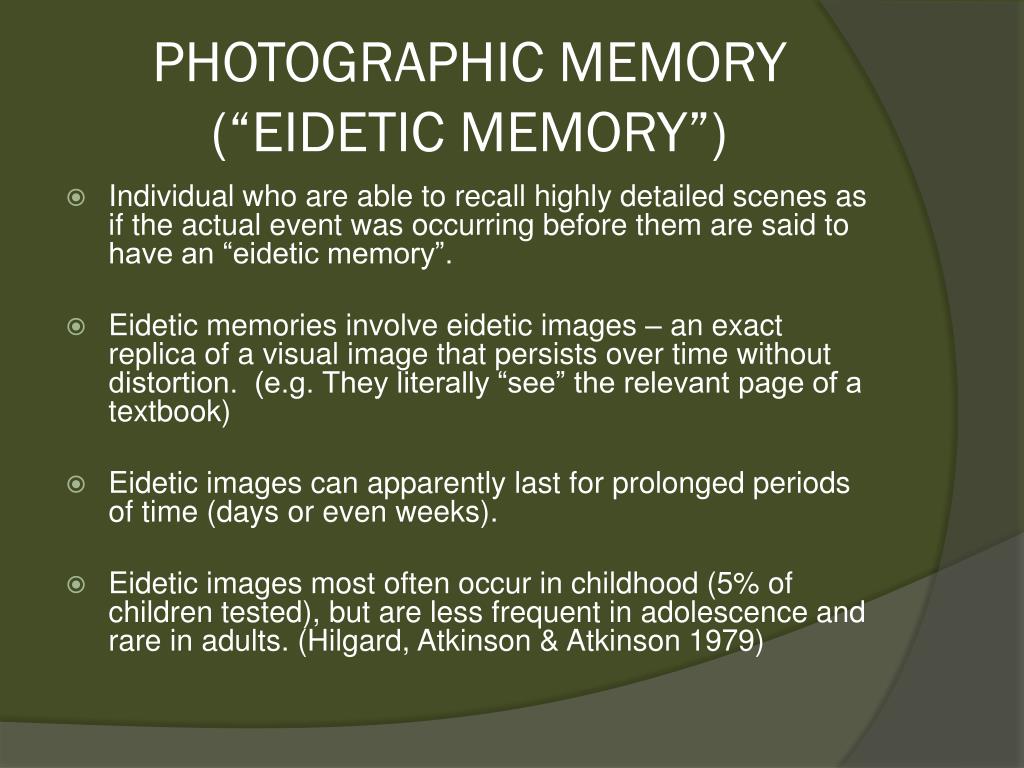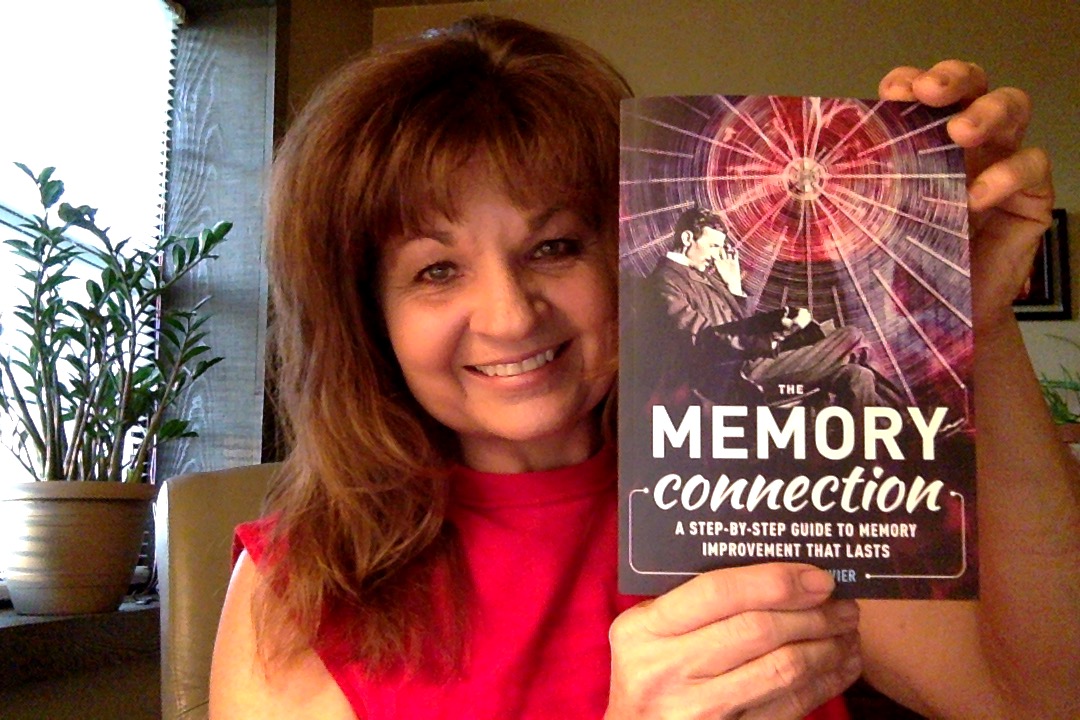

However, such results can be duplicated using mental images and the "method of loci". The authors of the Guinness Book of Records, Norris and Ross McWhirter, had extraordinary memory, in that they could recall any entry in the book on demand, and did so weekly in response to audience questions on the long-running television show Record Breakers. The 2004 World Memory Champion Ben Pridmore memorized the order of cards in a randomly shuffled 52-card deck in 31.03 seconds. For example, on July 2 2005, Akira Haraguchi managed to recite pi's first 83,431 decimal places from memory and more recently to 100,000 decimal places in 16 hours (October 4, 2006). Guinness World Records lists people with extraordinary memories. A paper about her abilities was presented at the national APA convention in 1976-77. She was studied for years at the State University of New York in Oneonta by Dr.
#EIDETIC MEMORY MEANING DRIVER#
In 1993, taxi driver Tom Morton, who knew over 16,000 telephone numbers in Lancashire, beat the British Olympia Telephone Exchange computer with his recall while being interviewed by Esther Rantzen and Adrian Mills on the popular BBC magazine programme That's Life!.Stephen Wiltshire, MBE, is a prodigious savant, capable of drawing the entire skyline of a city after a helicopter ride.Ampère, French physicist and mathematician.

Regardless, here are a number of individuals with extraordinary memory that have been labeled by some as eidetikers. Ī number of people claim to have eidetic memory, but nearly no one has been tested and documented as having a memory that is truly photographic in a literal sense.

Such a focus on their individual arts most likely improved the relevant parts of their memory, which may account for their surprising abilities. While many famous artists and composers (Claude Monet and Mozart) are commonly thought to have had eidetic memory, it is possible that their memories simply became highly trained in their respective fields of art, as they each devoted large portions of their waking hours towards the improvement of their abilities. While many people demonstrate extraordinary memory abilities, it is unlikely that true eidetic memory, if it exists at all, is found in adults. Eidetic memory as observed in children is typified by the ability of an individual to study an image for approximately 30 seconds, and maintain a nearly perfect photographic memory of that image for a short time once it has been removed-indeed such eidetikers claim to "see" the image on the blank canvas as vividly and in as perfect detail as if it were still there. The word eidetic ( pronounced /aɪˈdɛtɨk/) means related to extraordinarily detailed and vivid recall of visual images, and comes from the Greek word είδος ( eidos), which means "form." Eidetic memory can have a very different meaning for memory experts who use the picture elicitation method to detect it. Eidetic memory, photographic memory, or total recall is the ability to recall images, sounds, or objects in memory with extreme accuracy and in abundant volume.


 0 kommentar(er)
0 kommentar(er)
